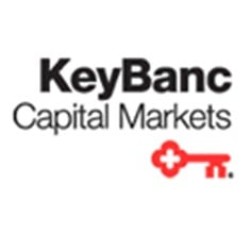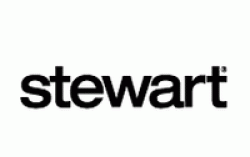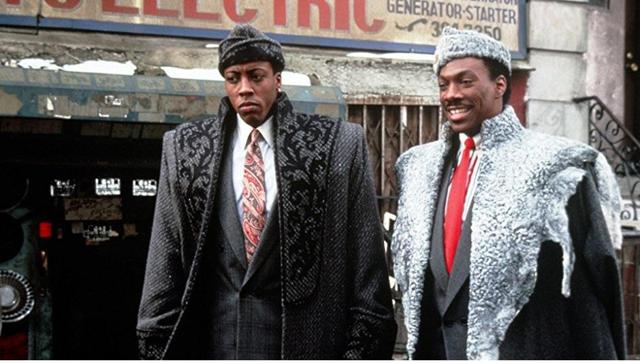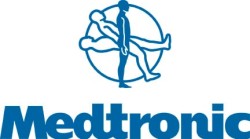 American Century Companies Inc. reduced its position in Snap-on (NYSE:SNA) by 93.6% during the first quarter, according to its most recent filing with the Securities and Exchange Commission (SEC). The firm owned 17,330 shares of the company’s stock after selling 253,734 shares during the quarter. American Century Companies Inc.’s holdings in Snap-on were worth $2,557,000 as of its most recent SEC filing.
American Century Companies Inc. reduced its position in Snap-on (NYSE:SNA) by 93.6% during the first quarter, according to its most recent filing with the Securities and Exchange Commission (SEC). The firm owned 17,330 shares of the company’s stock after selling 253,734 shares during the quarter. American Century Companies Inc.’s holdings in Snap-on were worth $2,557,000 as of its most recent SEC filing.
Other institutional investors have also recently bought and sold shares of the company. First Trust Advisors LP grew its stake in Snap-on by 147.6% in the 4th quarter. First Trust Advisors LP now owns 433,341 shares of the company’s stock worth $75,531,000 after acquiring an additional 258,310 shares in the last quarter. Elkfork Partners LLC bought a new position in Snap-on in the 4th quarter worth about $36,979,000. Fenimore Asset Management Inc. grew its stake in Snap-on by 221.5% in the 4th quarter. Fenimore Asset Management Inc. now owns 220,331 shares of the company’s stock worth $38,404,000 after acquiring an additional 151,797 shares in the last quarter. Dearborn Partners LLC grew its stake in Snap-on by 2,788.0% in the 1st quarter. Dearborn Partners LLC now owns 132,155 shares of the company’s stock worth $19,498,000 after acquiring an additional 127,579 shares in the last quarter. Finally, Teacher Retirement System of Texas grew its stake in Snap-on by 2,817.0% in the 4th quarter. Teacher Retirement System of Texas now owns 127,792 shares of the company’s stock worth $22,274,000 after acquiring an additional 123,411 shares in the last quarter. 99.40% of the stock is currently owned by institutional investors.
Get Snap-on alerts:NYSE SNA opened at $151.23 on Monday. The company has a debt-to-equity ratio of 0.31, a quick ratio of 1.57 and a current ratio of 2.28. Snap-on has a 52-week low of $140.83 and a 52-week high of $185.47. The company has a market cap of $8.56 billion, a PE ratio of 14.94, a price-to-earnings-growth ratio of 1.26 and a beta of 1.16.
Snap-on (NYSE:SNA) last released its quarterly earnings data on Thursday, April 19th. The company reported $2.79 earnings per share (EPS) for the quarter, beating the Zacks’ consensus estimate of $2.73 by $0.06. Snap-on had a net margin of 15.50% and a return on equity of 20.63%. The firm had revenue of $935.50 million for the quarter, compared to the consensus estimate of $926.52 million. During the same period last year, the firm earned $2.39 earnings per share. The company’s quarterly revenue was up 5.5% on a year-over-year basis. equities analysts predict that Snap-on will post 11.64 earnings per share for the current year.
The firm also recently disclosed a quarterly dividend, which will be paid on Friday, June 8th. Stockholders of record on Monday, May 21st will be paid a dividend of $0.82 per share. The ex-dividend date is Friday, May 18th. This represents a $3.28 dividend on an annualized basis and a dividend yield of 2.17%. Snap-on’s dividend payout ratio is presently 32.41%.
SNA has been the topic of a number of research analyst reports. Barrington Research restated a “buy” rating on shares of Snap-on in a research note on Thursday, March 8th. ValuEngine downgraded shares of Snap-on from a “hold” rating to a “sell” rating in a research note on Wednesday, May 2nd. Robert W. Baird restated a “buy” rating and issued a $210.00 target price on shares of Snap-on in a research note on Friday, April 20th. Zacks Investment Research upgraded shares of Snap-on from a “hold” rating to a “buy” rating and set a $178.00 target price on the stock in a research note on Wednesday, February 14th. Finally, B. Riley set a $205.00 target price on shares of Snap-on and gave the stock a “buy” rating in a research note on Monday, March 12th. Two research analysts have rated the stock with a sell rating, three have given a hold rating and six have given a buy rating to the stock. The company presently has an average rating of “Hold” and an average price target of $189.13.
Snap-on Company Profile
Snap-on Incorporated manufactures and markets tools, equipment, diagnostics, and repair information and systems solutions for professional users worldwide. The company operates through Commercial & Industrial Group, Snap-on Tools Group, Repair Systems & Information Group, and Financial Services segments.
 Teacher Retirement System of Texas lessened its position in KeyCorp (NYSE:KEY) by 19.2% during the 1st quarter, HoldingsChannel.com reports. The institutional investor owned 237,965 shares of the financial services provider’s stock after selling 56,681 shares during the quarter. Teacher Retirement System of Texas’ holdings in KeyCorp were worth $4,652,000 at the end of the most recent quarter.
Teacher Retirement System of Texas lessened its position in KeyCorp (NYSE:KEY) by 19.2% during the 1st quarter, HoldingsChannel.com reports. The institutional investor owned 237,965 shares of the financial services provider’s stock after selling 56,681 shares during the quarter. Teacher Retirement System of Texas’ holdings in KeyCorp were worth $4,652,000 at the end of the most recent quarter.  Argo Group International Holdings, Ltd. underwrites specialty insurance and reinsurance products in the property and casualty markets. The company operates in two segments, U.S. Operations and International Operations. The U.S. Operations segment underwrites primary and excess specialty casualty, and commercial multi-peril, as well as contract, product, environmental, and auto liability products; and workers compensation, general, management, errors and omissions, and public entity liability risks. This segment distributes its products through a network of wholesale agents and brokers. Its International Operations segment offers coverage for long-tail casualty and general liability; catastrophe reinsurance, and direct and facultative excess reinsurance; professional indemnity, directors and officer's liability, and medical malpractice; and direct and facultative excess reinsurance, North American and international binders, and residential collateral protection for lending institutions. This segment also underwrites risks of general liability, international casualty, and motor treaties; and personal accident, aviation, cargo, yachts, and onshore and offshore marine insurance. It sells its reinsurance products through brokers and third-party intermediaries. Argo Group International Holdings, Ltd. was founded in 1986 and is headquartered in Pembroke, Bermuda.
Argo Group International Holdings, Ltd. underwrites specialty insurance and reinsurance products in the property and casualty markets. The company operates in two segments, U.S. Operations and International Operations. The U.S. Operations segment underwrites primary and excess specialty casualty, and commercial multi-peril, as well as contract, product, environmental, and auto liability products; and workers compensation, general, management, errors and omissions, and public entity liability risks. This segment distributes its products through a network of wholesale agents and brokers. Its International Operations segment offers coverage for long-tail casualty and general liability; catastrophe reinsurance, and direct and facultative excess reinsurance; professional indemnity, directors and officer's liability, and medical malpractice; and direct and facultative excess reinsurance, North American and international binders, and residential collateral protection for lending institutions. This segment also underwrites risks of general liability, international casualty, and motor treaties; and personal accident, aviation, cargo, yachts, and onshore and offshore marine insurance. It sells its reinsurance products through brokers and third-party intermediaries. Argo Group International Holdings, Ltd. was founded in 1986 and is headquartered in Pembroke, Bermuda. Stewart Information Services Corporation, through its subsidiaries, provides title insurance and real estate transaction services. The company operates in two segments, Title Insurance and Related Services, and Ancillary Services and Corporate. The Title Insurance and Related Services segment is involved in searching, examining, closing, and insuring the condition of the title to real property. This segment also offers centralized title services, including title and closing, post-closing, default, and REO-related title services; home and personal insurance services; and services for tax-deferred exchanges. The Ancillary Services and Corporate segment primarily provides search, appraisal, and valuation services to the mortgage industry. The company serves homebuyers and sellers, residential and commercial real estate professionals, mortgage lenders and servicers, title agencies and real estate attorneys, home builders, and mortgage brokers and investors. It operates in the United States, Canada, the United Kingdom, Australia, Central Europe, and internationally. Stewart Information Services Corporation was founded in 1893 and is headquartered in Houston, Texas.
Stewart Information Services Corporation, through its subsidiaries, provides title insurance and real estate transaction services. The company operates in two segments, Title Insurance and Related Services, and Ancillary Services and Corporate. The Title Insurance and Related Services segment is involved in searching, examining, closing, and insuring the condition of the title to real property. This segment also offers centralized title services, including title and closing, post-closing, default, and REO-related title services; home and personal insurance services; and services for tax-deferred exchanges. The Ancillary Services and Corporate segment primarily provides search, appraisal, and valuation services to the mortgage industry. The company serves homebuyers and sellers, residential and commercial real estate professionals, mortgage lenders and servicers, title agencies and real estate attorneys, home builders, and mortgage brokers and investors. It operates in the United States, Canada, the United Kingdom, Australia, Central Europe, and internationally. Stewart Information Services Corporation was founded in 1893 and is headquartered in Houston, Texas.


 KBC Group NV boosted its position in Medtronic PLC (NYSE:MDT) by 2.4% in the first quarter, according to the company in its most recent 13F filing with the Securities & Exchange Commission. The institutional investor owned 655,442 shares of the medical technology company’s stock after purchasing an additional 15,628 shares during the period. KBC Group NV’s holdings in Medtronic were worth $52,580,000 at the end of the most recent quarter.
KBC Group NV boosted its position in Medtronic PLC (NYSE:MDT) by 2.4% in the first quarter, according to the company in its most recent 13F filing with the Securities & Exchange Commission. The institutional investor owned 655,442 shares of the medical technology company’s stock after purchasing an additional 15,628 shares during the period. KBC Group NV’s holdings in Medtronic were worth $52,580,000 at the end of the most recent quarter.